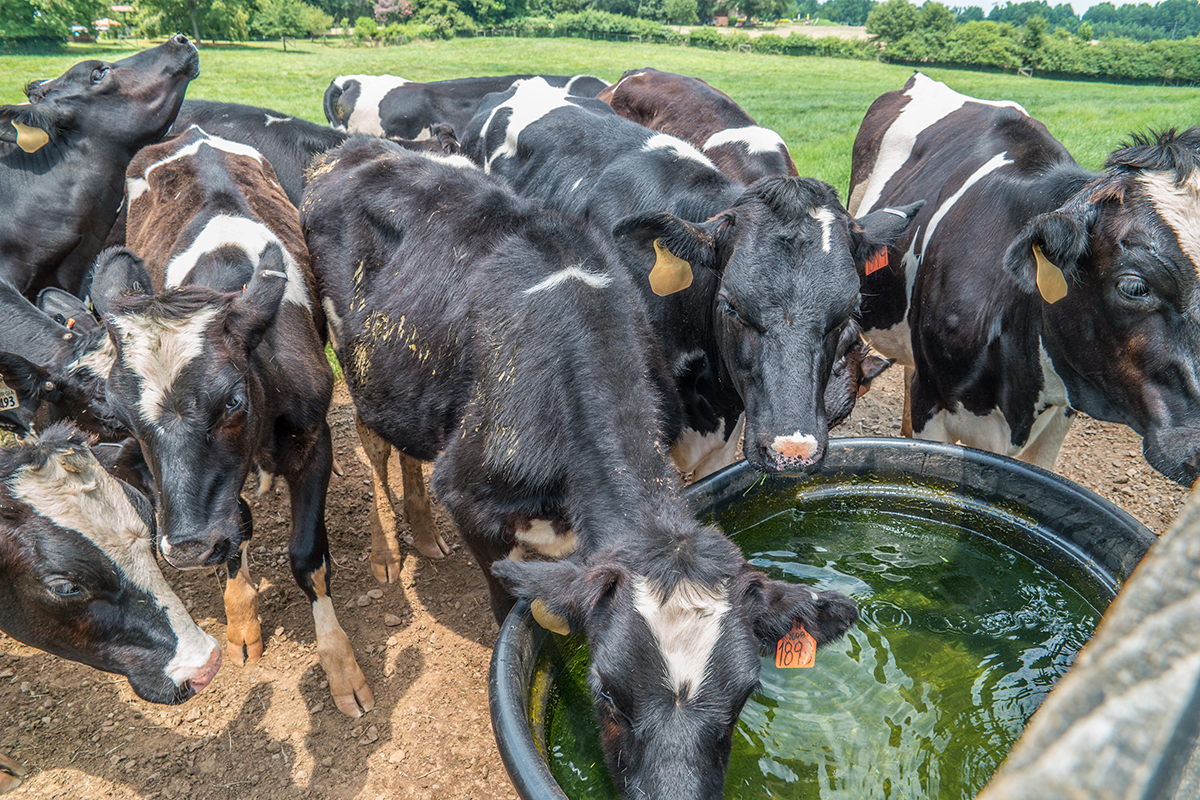Don’t Overlook this Key Component to Raising Healthy Livestock
Did you know that even with the best care, something as simple as water quality can impact the performance of your herd? We all know the importance of good nutrition and a clean environment for healthy livestock, but what is often overlooked is the critical role water plays. Without it, livestock well-being and performance can plummet, taking a toll on your farm’s profitability.
A telling example of this unfolded at a dairy farm in Arizona, where 6,000 calves are raised annually. Despite following industry-standard guidelines and protocols for raising healthy calves, the farm faced a major setback: 80-90% of their calves were treated for pneumonia, and 10-12% died.
The culprit? High salinity water.
Dr. Donald Sockett, a microbiologist and epidemiologist at the Wisconsin Veterinary Diagnostic Laboratory, conducted an analysis of the calves’ drinking water, uncovering high levels of sodium and chloride which exceeded recommended limits for calves fed a milk replacer diet. According to Dr. Sockett, the high salinity likely trigged a number of health issues for the calves, including:

- Reduced water intake: The calves on high salinity water drank significantly less than those with reverse osmosis water.
- Subclinical dehydration: Even if calves appear to be drinking, poor water quality can make it difficult for them to properly hydrate.
- Respiratory complications: When the body struggles to eliminate excess minerals, it can lead to an acidic state, impacting the calves’ respiratory function.
The solution? The farm implemented a chlorine dioxide and reverse osmosis (RO) water treatment system to significantly reduce salinity levels in the drinking water.
The results were dramatic and almost instant. Within weeks, treatment rates for Bovine Respiratory Disease (BRD) decreased from 80-90% to less than 5%. Calf deaths dropped significantly too, falling below 2%.
Protect Your Herd’s Health: Test Your Water Regularly
This farm’s story is a powerful reminder: even with solid management protocols, water quality is crucial. Experts recommend testing water sources twice a year – even if a problem doesn’t seem apparent – as water quality can change throughout the year. Leveraging AgSource’s livestock water testing services can help you identify potential problems before they affect your herd.
Don’t let water quality silently steal your profits. Dive into more from Dr. Donald Sockett and James Friedericks, Ph.D., director of laboratory quality and research at AgSource, on the importance of water quality in this webinar: Unlocking the Power of Water: Optimizing Animal Health and Performance Through Water Quality.
Ready to optimize your livestock water? Reach out to AgSource’s team of experts to discuss water testing options for your operation.

